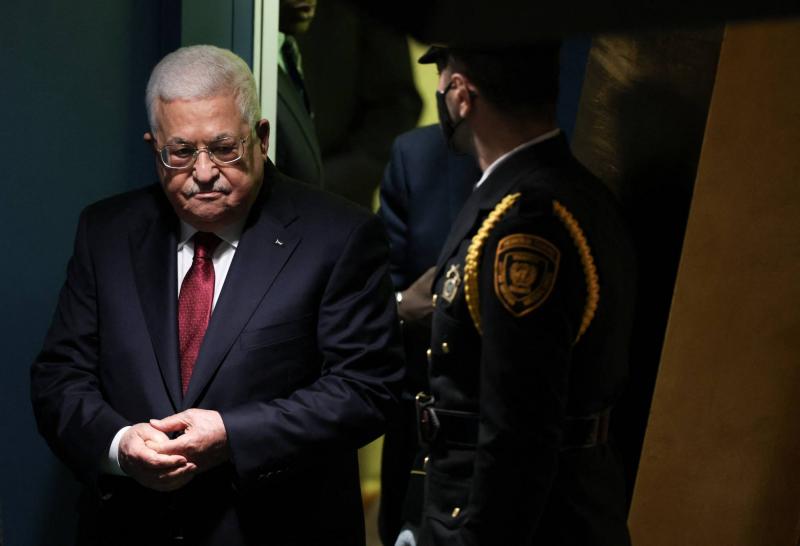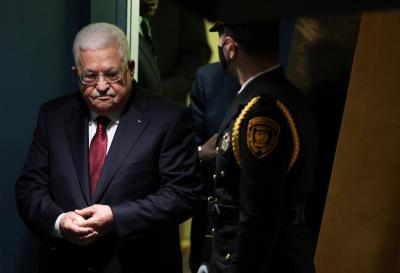With the return of unrest to the Israeli-occupied West Bank following the latest wave of violence this week, uncertainty regarding the status of Palestinian President Mahmoud Abbas, who is 87 years old, has intensified, and the prospect of achieving peace through negotiations appears weaker than ever.
The fragility of the situation in the West Bank was clearly evident following a gun battle on Monday that resulted in the deaths of seven Palestinians and injuries to more than 90, followed a day later by the killing of four Israelis and acts of vandalism in Palestinian villages carried out by Israeli settlers. These events revealed the vulnerability of the Palestinian Authority in the face of hundreds of armed Palestinians in troubled cities like Jenin and Nablus, while the expansion of Israeli settlements continues to undermine Palestinian hopes of establishing a state on the land occupied by Israel in the 1967 war. The Palestinian Authority was established 30 years ago under temporary peace agreements with Israel that Abbas helped draft. However, the popularity of this authority is waning due to allegations of corruption, inefficiency, and widely disliked security cooperation arrangements with Israel. Mockery erupted on TikTok following a troubled speech at the United Nations last month, where Abbas repeatedly called on the world to protect the Palestinian people, saying, "Protect us, protect us." This topic was revisited on social media this week as the Palestinian Authority, which exercises limited self-rule, appeared powerless in the face of Jewish settlers' attacks on Palestinian villages.
Mahmoud Abbas, Abu Mazen, has defied repeated predictions of the end of his two-decade rule and rejected increasing calls for his resignation, at a time when the prospects for achieving lasting peace seem further away than ever. Abbas, a heavy smoker, has survived numerous health crises and has held the position of president for nearly two decades since the death of Yasser Arafat, the symbolic founder of the Palestine Liberation Organization. His departure could lead to turmoil in the entire Palestinian political system. Abbas holds both the positions of President of the Palestine Liberation Organization and President of the Fatah movement, and he has not chosen a successor, remaining in power despite his official term ending in 2009.
The question of Abbas's succession has become a more commonly discussed topic in recent months; however, about 80 percent of Palestinians want him to resign, according to a poll by the Palestinian Center for Policy and Survey Research. Pressure on him to resign has increased as international powers, including the United States, call for the resumption of peace negotiations with Israel, which have been stalled since 2014. A senior Fatah official, speaking on condition of anonymity due to the sensitive nature of the topic, stated that the issue of succession has been "discussed more than ever" in recent months. A group of senior Fatah leaders has been competing for the position for months, maneuvering in the shadows and behind the scenes. The situation is further complicated by the fact that elections have not been held since 2006 and there is no clear mechanism for determining the transition of leadership. Among the potential successors are Hussein al-Sheikh, one of Abbas's closest allies, and Marwan Barghouti, a prisoner in Israel for two decades and a leader of the Palestinian uprising between 2000 and 2006, who is viewed by many Palestinians as a hero.
Much will depend on what Israel is willing to accept, yet it has avoided, at least publicly, taking sides. A senior Israeli government official said, "Israel cannot choose leadership for the Palestinians." The departure of Abbas could lead to a period of chaos, possibly resulting in a form of civil war. Fatah leaders generally appear, at least publicly, to downplay speculation, but they acknowledge that a discussion about leadership is taking place within the movement. Mahmoud Aloul, deputy head of Fatah and a potential successor to Abbas, stated, "There are many exaggerations regarding these topics and an exaggeration toward us heading into the unknown." He added, "Yes, there are many issues that are being discussed and still are," which includes the leadership issue. In remarks made before the recent developments in the West Bank, he said, "For us, the issue related to leadership is whether all key positions remain in one person's hand or one institution, and who leads the PLO is different from who leads Fatah and who leads the Authority... There's discussion, but there are no fears like those some are trying to present and export fears and panic."
However, many observers fear that Abbas's departure could lead to a period of chaos, possibly resulting in a form of civil war or at least a division into "cantons" among leaders holding different centers of power in the West Bank. There is also a possibility that Hamas's influence could extend beyond its base in Gaza. Israeli military spokesperson Daniel Hagari said, "There are two bad options: one is chaos, and the other is Hamas taking power in the West Bank, both must be prevented." Bassam Naeem, a senior Hamas official in Gaza, stated that Abbas's departure would provide opportunities that Israel and its international allies are determined to hinder. He added that Abbas is "the last person in Fatah, in my opinion, who can control this organization... all the rest do not have the power, history, charisma, or connections to control the organization and the West Bank."
Hamas has controlled the besieged Gaza Strip since winning the Palestinian elections in 2006 and defeating Fatah in a short civil war in 2007. Now, Hamas is working to expand its influence in the West Bank and is increasingly challenging Fatah on its own territory. Hamas has long called for elections to choose a new Palestinian leader, confident of its victory, as it did in 2006. Naeem stated, "We believe the only way to politically unify the Palestinians is to go to elections... otherwise, no one will enjoy full legitimacy to represent the Palestinians."




